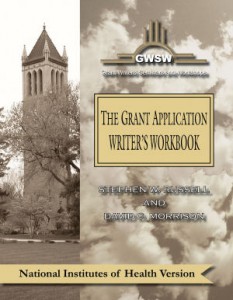“Dear GWSW,
I recently heard back from the NSF ECR program officer on my Overview and Objectives section and, while s/he did agree that the proposal was appropriately theory-focused, s/he had serious reservations regarding the unique contribution of my proposal (i.e., ‘the area is already well covered by other applicants’). I followed up by providing more details on the data and methodology of my study and how it differs from all the existing projects, but have not received any further feedback. Knowing that a program officer is not keen on the proposal, and not given any further information, I find it really difficult to revise my proposal. I would appreciate advice on how to move forward from here (e.g., email the program officer again with a revised Overview and Objectives section and seek feedback? Should I continue revising and finishing up my full proposal?) Thank you in advance, Sincerely, R. S.”
Dear R. S.,
Well, we must admit that this is a potential problem as well. Not having the relatively strong endorsement of an NSF Program Officer before you submit your proposal is going to significantly limit your opportunities to get this proposed proposal funded. The primary problem, as we see it, is the Program Officer’s comment that there has already been extensive previous work that has been done in this field. S/he specifically states in her/his correspondence: “We have previously funded a number of projects through the ……. programs… (designed) to uncover many of the same factors you identify in your premise. I encourage you to look at the existing work of… (award #XXXXXXX and previous awards), … (XXXXXXX and previous awards), … (XXXXXXX and previous awards), … (XXXXXXX), L. S. (XXXXXXX), and … (XXXXXXX). [Names and award numbers deleted for privacy purposes.] This is not to suggest you should not develop your ideas and submit a proposal. I simply want to make you aware there is research in the field doing similar work, some with similar theoretical bases, and perhaps some using the same data you are proposing.”
In essence, what it seems that the Program Officer is telling you “between the lines” is that s/he does not perceive the expected results from the completion of your proposed research to result in significant advances in the field. This is best communicated in the comment: “This means you will need to do some homework to position your work as both contributing to this broader dialog and offering new perspectives”. I do understand that you plan to present the argument that your proposal differs in terms of “scale, timespan and degree of comprehensiveness”, but it seems to me that these are relatively qualitative issues, rather than strategies that will likely result in significant conceptual (vertical) advances in the field. In other words, while these additional qualities that you will bring by carrying out this research will undoubtedly allow you to more effectively ‘Dot the i’s and cross the t’s’, we would suggest that you would need to position your proposal such that you would be able to truly make “vertical advances” in the field rather than simply expanding the existing knowledge base (horizontal advances). Does this make sense?
We are also not certain that you can expect much in the way of additional responses from the Program Officer. As we indicated to you above, the fundamental question will be: How will the successful completion of your project provide a conceptual framework for new perspectives in understanding… that have not already been pretty well hammered out. If you can convincingly do this, then by all means proceed with your proposal but, as we routinely address in detail in all of our versions of The Grant Application Writer’s Workbook to all applicants: seek critical advice from both NSF Program Officers AND colleagues to gain independent assessments as to the feasibility of your research plan. In this case, advice from the latter will be critical.
Hoping this information helps.
Best regards,
GWSW Staff

